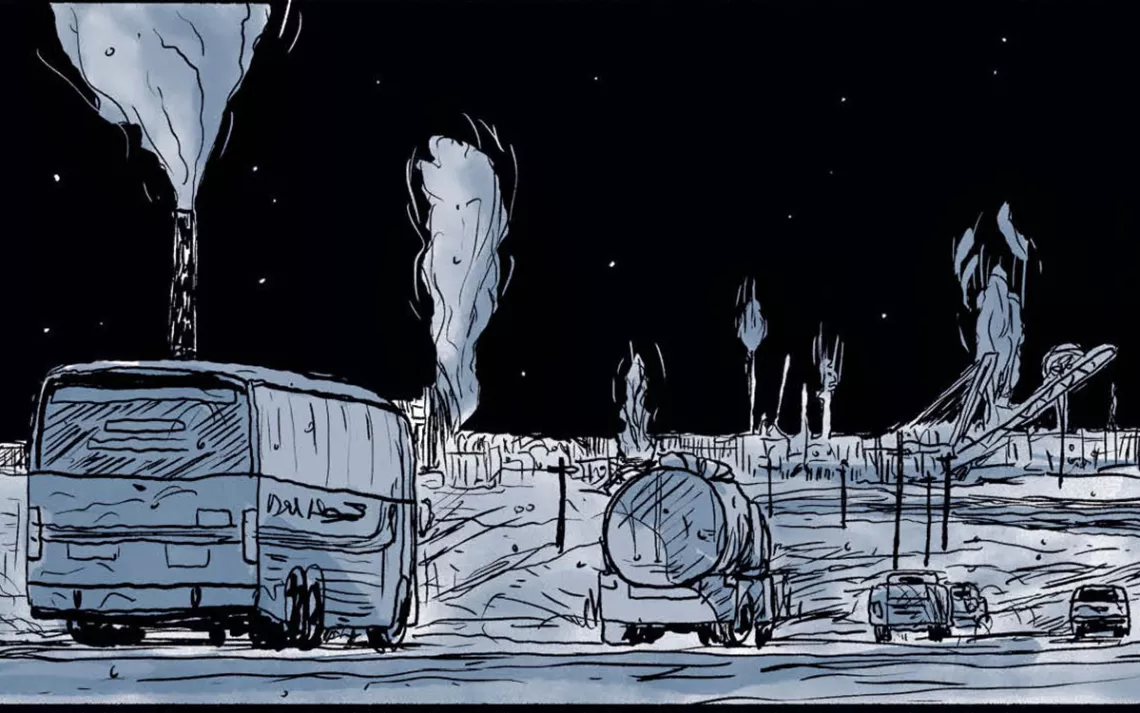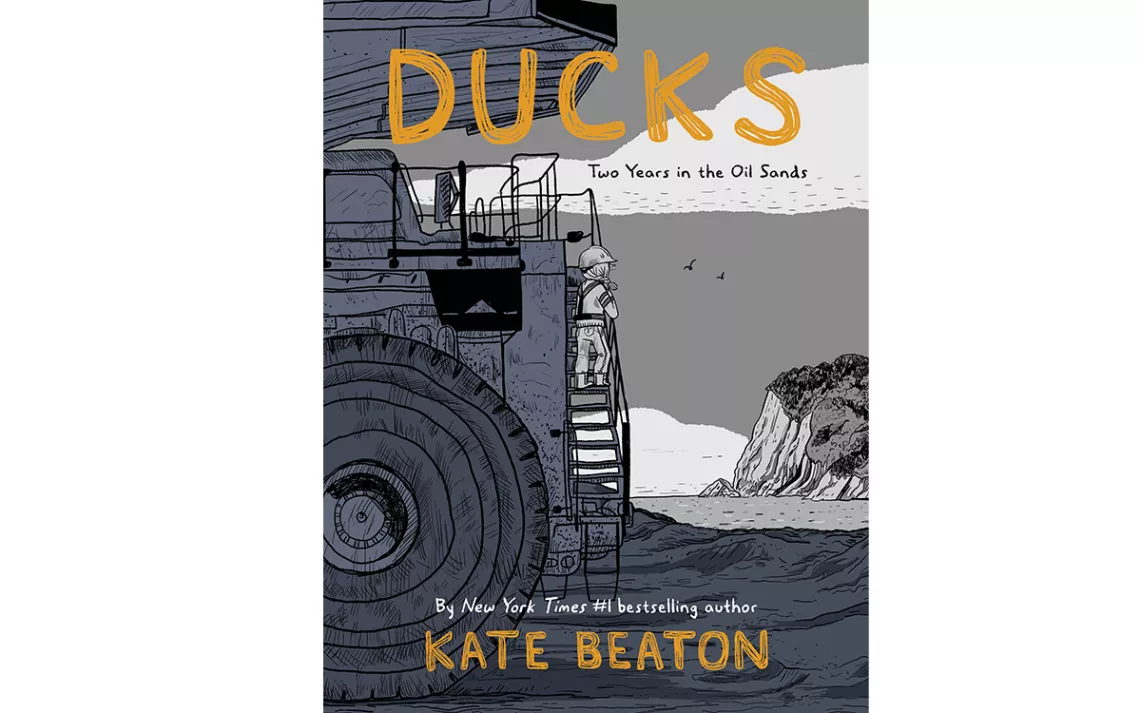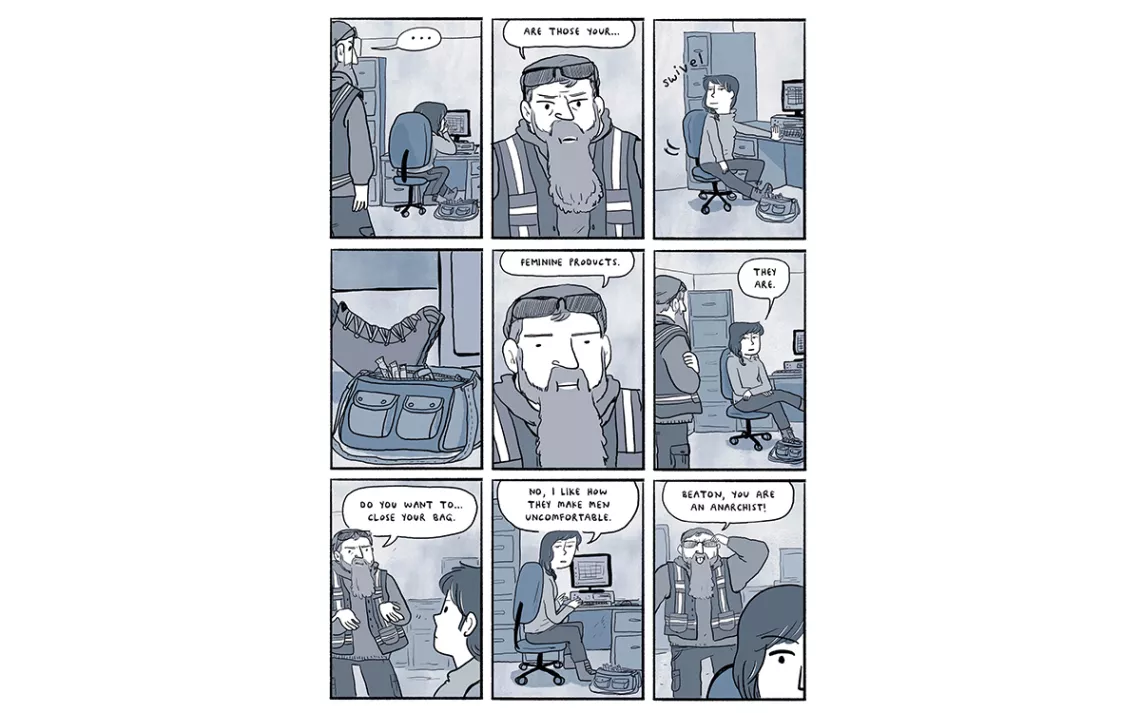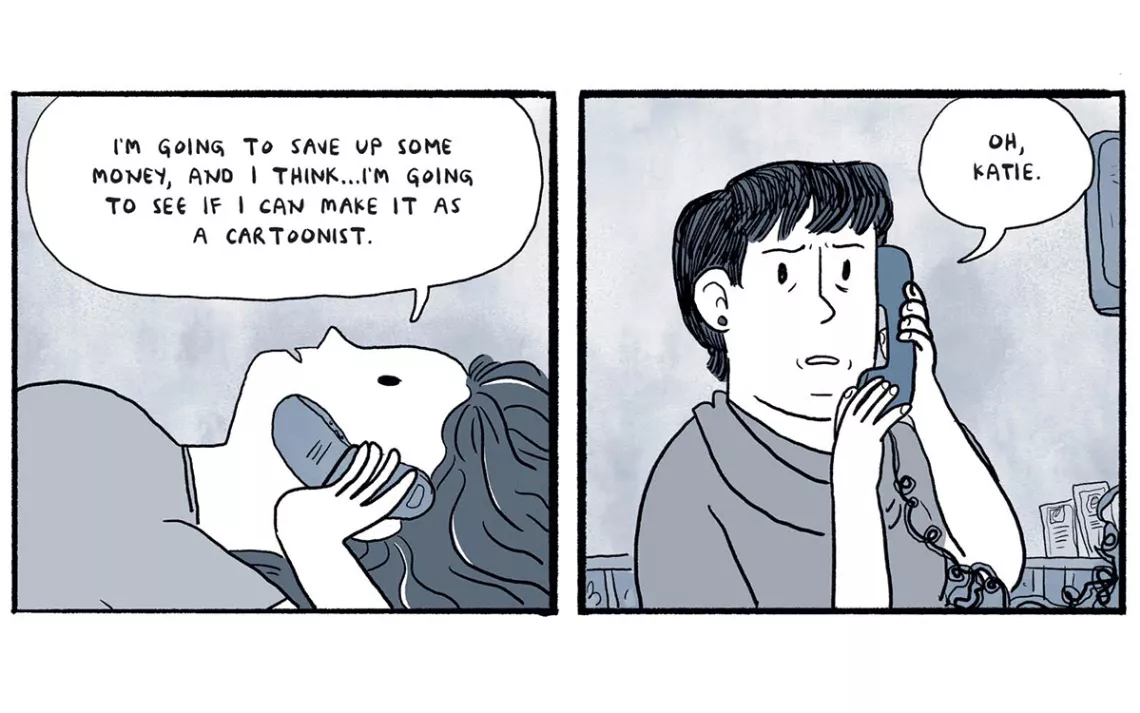Stuck in the Tar Sands
In Kate Beaton’s graphic memoir, "Ducks," environmental destruction is overshadowed by the relentless sexism

Illustrations by Kate Beaton, from "Ducks," courtesy of Drawn & Quarterly
I allowed myself the luxury of reading cartoonist Kate Beaton’s new graphic memoir, Ducks (Drawn & Quarterly, 2022) all in one sitting. As a cartoonist and author of graphic memoirs myself, I know that they involve years—YEARS—of labor. But I’m not offended when people tell me they read my books in one go. A graphic novel, like a good movie, is something you want to enjoy uninterrupted.
I’ve long been a fan of Beaton. She’s from Cape Breton, a small island in Nova Scotia that has so little in the way of a local economy that its citizens have a built-in tradition of moving elsewhere to make a living. The push and pull of struggling, and leaving, and yearning for home has made its way into Cape Breton culture via folk songs and literature—and now Beaton has contributed to that pantheon in her own way.
Ducks is the story of the two years she spent after college working in the oil sands fields of Alberta, Canada, in immense, isolated, land-raping industrial compounds. She does so to pay off student loans so large that she describes them as a foot on her neck. She doesn’t mind the labor itself—distributing tools to the workers, and later, administrative work. What overwhelms her is living in a dormitory in the remote oil sands encampment surrounded 50-to-1 by men who left their filters at home. In those two years, she learns that everyone she works with is, in some way, desperate.

Beaton endures the brutal weather, the loneliness, alienation, the ever-present exposure to carcinogens. She manages to foil the relentless sexual harassment with snappy comebacks and razor-sharp deflections. She deftly swats away truly debasing sexual remarks like the swarms of stinging black flies—until they don’t work anymore, and there is—of course, finally—an assault. The most soul-killing part is the relentlessness of her male coworkers calling attention to and remarking on her body. The only reason she stays is because it is possible to make a great deal of money in a short amount of time. Even though her coworkers are there to remind her that she is “sitting on a gold mine.” The myriad ways in which she articulates how being constantly objectified distills every woman's experience.
Maybe it is because Beaton recognizes the desperation in her coworkers that she has the generosity to portray even the worst of them with astonishing humanity. You know these men—you’ve probably met them. Some are kindness itself. Others are lost souls. Many are just trapped in the cycle of making and spending too much money and rampant drug and alcohol abuse. There is a lot of on-the-job humor, the light banter that lubricates the daily grind, much of it involving the lack of humanity shown by the corporate overlords.

Her pacing and economy of line are perfection, from the expressiveness of her characters to the two-page spreads that give a horrifying scope to the immensity of the compounds. The beautiful rendering of immense machinery is a triumph. This, I think, is the sign of a great artist—the ability to distill ugliness into something that gives us pleasure to look at.
It helps greatly that Beaton has a natural ear for great dialogue. Near the end of the book she tells a coworker she feels somehow disloyal for portraying these men truthfully, because so many of them are “her people” from her own remote part of Canada. “It’d be nice if empathy was reciprocal,” the woman retorts.
Artists can weaponize their experiences. Kate Beaton has done it here. She tells a fully fleshed out story of the inhumane corporate commodification of labor in general, also exposes the sexism that is the air that women breathe, and ends with catharsis. On top of everything, her mother's reaction when she has paid off her loan is a priceless gift to cartoonists everywhere.

 The Magazine of The Sierra Club
The Magazine of The Sierra Club



